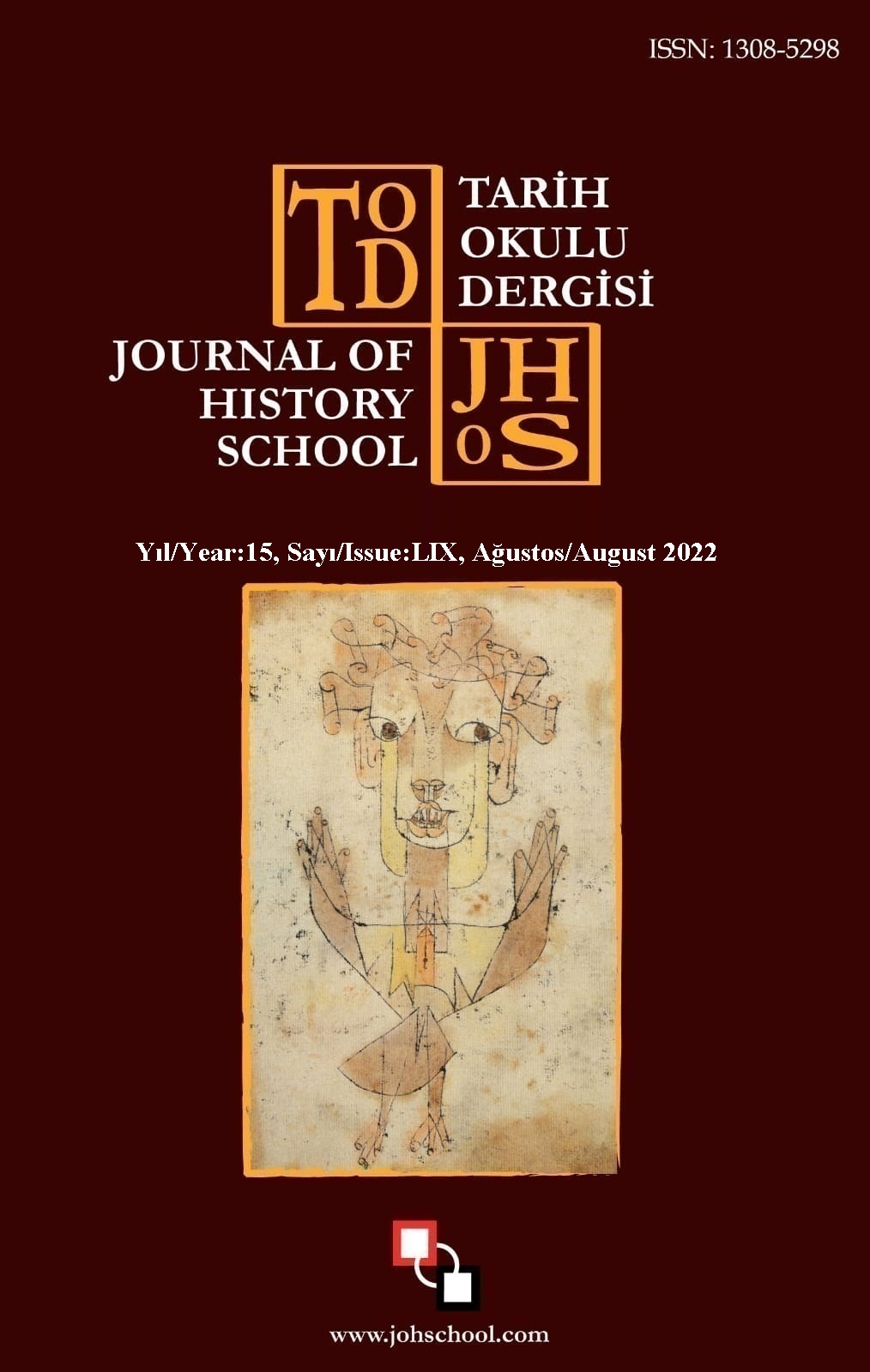SEKİZİNCİ SINIF ÖĞRENCİLERİNİN ELEŞTİREL DÜŞÜNME EĞİLİMLERİ, OKUDUĞUNU ANLAMA DÜZEYLERİ VE OKUMAYA İLİŞKİN TUTUMLARI HAKKINDA ÖĞRETMEN GÖRÜŞLERİ
Author :
Abstract
Bu araştırmanın amacı; sekizinci sınıf öğrencilerinin eleştirel düşünme eğilimleri, okuduğunu anlama düzeyleri ve okumaya ilişkin tutumları hakkında Türkçe öğretmenlerinin görüşlerini belirlemektir. Nitel araştırma yöntemi kullanılan araştırmada, durum çalışması modeli tercih edilmiştir. Araştırmanın çalışma grubu, 2018-2019 eğitim-öğretim yılı Sivas ili Merkez ilçesinde yer alan 25 farklı ortaokulda görev yapan toplam 27 Türkçe öğretmeninden oluşmaktadır. Araştırmada veriler araştırmacı tarafından hazırlanan yarı yapılandırılmış görüşme formu ile toplanmıştır. İki bölümden oluşan görüşme formunun birinci bölümünde öğretmenlerin kişisel bilgilerini (cinsiyet, mesleki kıdem ve mezun olunan fakülte, mezun olunan bölüm, eğitim durumu) belirlemeye yönelik maddeler, ikinci bölümünde öğretmenlerin sekizinci sınıf öğrencilerinin eleştirel düşünme eğilimlerine, okuduğunu anlama düzeylerine, okumaya ilişkin tutumlarına, eleştirel düşünme eğilimleri ile okuduğunu anlama düzeyleri arasındaki ilişkiye, eleştirel düşünme eğilimleri ile okumaya ilişkin tutumları arasındaki ilişkiye; öğrencilerin eleştirel düşünme eğilimlerini, okuduğunu anlama düzeylerini ve okumaya ilişkin tutumlarını olumlu yönde geliştirmek için öğretmenler, veliler ve öğrenciler tarafından yapılması gerekenlere ilişkin görüşlerini belirlemeye yönelik 8 açık uçlu soru yer almaktadır. Araştırmada elde edilen veriler, içerik analizi yöntemiyle analiz edilmiştir. Araştırma sonucunda; öğretmenlerin çoğunluğu sekizinci sınıf öğrencilerinin eleştirel düşünme eğilimlerinin ve okuduğunu anlama düzeylerinin düşük düzeyde olduğunu, okumaya karşı olumsuz bir tutum içerisinde olduklarını belirtmişlerdir. Öğretmenlerin tamamı öğrencilerin okuduğunu anlama düzeyleri arttıkça ve okumaya ilişkin olumlu tutum geliştirdikçe eleştirel düşünme eğilimlerinin de arttığını ifade etmişlerdir. Bununla birlikte araştırmada, öğretmenler öğrencilerin eleştirel düşünme eğilimlerini, okuduğunu anlama düzeylerini ve okumaya ilişkin tutumlarını olumlu yönde geliştirmek için öğretmenler, veliler ve öğrenciler tarafından yapılması gerekenleri ortaya koymuştur.
Keywords
Abstract
The purpose of this research is to determine the opinions of Turkish teachers about eighth grade students’ critical thinking dispositions, reading comprehension levels, and attitudes towards reading. The case study model was preferred in the study, in which the qualitative research method was used. The study group of the research consists of 27 Turkish teachers working in 25 different secondary schools located in the central district of Sivas province in the 2018-2019 academic year. In the research, the data were collected with the semi-structured interview form prepared by the researcher. The interview form consists of two parts. The first part contains items to determine teachers’ personal details (gender, professional seniority, graduated faculty and department, educational attainment). The second part includes 8 open-ended questions for determining teachers’ opinions of eighth grade students’ critical thinking dispositions, reading comprehension levels, attitudes towards reading, the relationship between their critical thinking dispositions and reading comprehension levels, the relationship between their critical thinking dispositions and attitudes towards reading, action to be taken teachers, parents, and students in order to improve students’ critical thinking dispositions, reading comprehension levels, and positive attitudes towards reading. The data obtained in the research were analyzed by content analysis method. As a result of the research, the majority of the teachers stated that the eighth-grade students had low critical thinking dispositions and reading comprehension levels and they had a negative attitude towards reading. All of the teachers stated that as students’ reading comprehension levels increase and they develop a positive attitude towards reading, their critical thinking dispositions also increase. Teachers also emphasized the actions to be taken by teachers, parents, and students in order to improve students’ critical thinking dispositions, reading comprehension levels, and positive attitudes towards reading.





